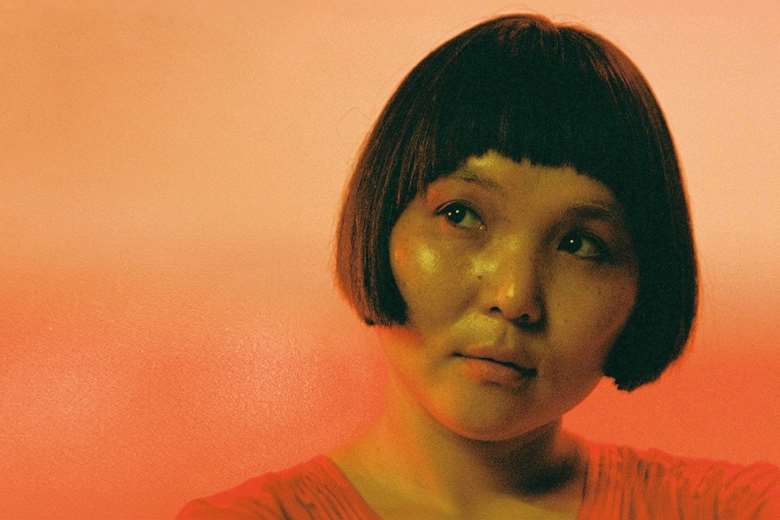Taking Off: Enji
Ammar Khalia
Thursday, September 12, 2024
Ammar Khalia meets Enkhjargal Erkhembayar – known mononymously as Enji – the Mongolian jazz singer and composer who’s making waves here in the West

Born in the Mongolian capital of Ulaanbaatar, Enkhjargal Erkhembayar was raised with singing as an integral part of her life.
“My parents would get home to our yurt after a long day working at the local factory and their friends often joined them to relax,” she says. “They would eat and talk and someone would always get up and start singing. It was so powerful, soon all of us joined in and we would keep singing as a way to find joy and express ourselves long into the night.”
Since releasing her debut album Mongolian Song in 2017, Erkhembayar (aka Enji) has blended the remarkably powerful sound of these traditional Mongolian long song compositions – where syllables are elongated through freeform vocalisations – with jazz instrumentation, continuing to create a deeply personal music on ensuing releases, 2021’s Ursgal and 2023’s Ulaan.
Despite the distinct clarity of her musical output, finding the melodic connections between ancient Mongolian folk song and the 'boundarylessness' of improvisation, Enji’s path into professional music wasn’t a straightforward one.
“The only people I saw making music a career in Mongolia were pop performers, there was no one else like me,” she says over a call from her current home in Munich. “I decided to work as a music teacher for school children instead and only briefly studied singing in my spare time.”
Hearing about a local long song teacher while she was in teacher training, Enji decided to take a month of classes and soon found a natural aptitude for the vocal style. “She explained all the techniques to sound big and hone your resonance but said it was only possible to find a real sound if I had the ‘singing gene’, a muscle memory I could tap into,” Enji says. “Surprisingly, my sound came within 14 days, it was so natural. I then decided to keep learning for another year, since it felt so freeing to use my voice.”
During this time, German bassist Martin Zenker arrived in Ulaanbaatar with a jazz education project and one of Enji’s colleagues suggested she try out for it. Auditioning on piano in 2014, which she had begun learning as part of her teacher training, while vocalising alongside, Zenker soon accepted her onto the program for her voice. Over the course of the ensuing two years, Enji discovered the world of jazz and in 2015 left Mongolia for the first time to record her debut album of jazz instrumentation and traditional Mongolian compositions in Munich.
“I loved that in jazz, everyone is equal and has to trust each other through the music,” she says with a smile. “It’s not an easy music to learn and that attracted me, since it’s all about finding your voice and originality, which is exactly the same as long song. They both felt like perfect matches.”
Following the release of Mongolian Song, Enji realised she wanted to explore this musical combination further; learning English and German, she moved to Munich in 2018. While deciding on the repertoire for her second album in the German city, Enji initially thought she would make a big band record playing her favourite standards, but Zenker convinced her otherwise.
“I had written a few compositions of my own in Mongolian and he said I should continue,” she explains. “It was easiest to express myself in my mother tongue and it took time for me to accept combining those lyrics with a jazz tradition. Then when Covid hit, I wrote lots to work through my emotions and that was what became the second album, just naked songs without drums or a big ensemble.”
Signed to Munich-based experimental label Squama, 2021’s Ursgal is a record of raw, vulnerable musicality, showcasing Enji’s maturing voice and developing lyrical sensibility across a backdrop of intricate guitar and double bass. It is a theme that continues on Ulaan, featuring songs written in homage to Enji’s father in Mongolia, as well as paeans to the majestic landscapes surrounding Munich.
“I was nervous about the reactions of Mongolians to my music, as it perhaps felt old-fashioned to be singing in the language when so many people use English,” she says. “But since touring sold-out shows there, the reaction has been fantastic. Lots of young people have told me the music has helped them find the beauty of the Mongolian language again, which means a lot to me.”
Her latest project,Poeji, with German drummer Simon Popp, forgoes lyrics entirely to produce Nant, a freeform record of whispered, shouted and subtle vocalisations, pushing her technique to its most experimental limits.
“We began playing as a duo in 2021, just freely improvising and it was so exciting.” Enji says. “It’s an abstract space where I can let out all of my chaos and explore my voice. There is no need to work out song structures.”
Having already found success in countries where Mongolian is rarely spoken, Enji’s music conveys the feeling behind lyrics, as much as their narrative. It is as if, in all her varied projects, she still searches for the emotion inherent in those nights of long song she would witness as a child.
“The exploration is limitless,” she says.“I’m just excited about what will happen next.”
This article originally appeared in the October 2024 issue of Jazzwise. Never miss an issue – subscribe to Jazzwise today